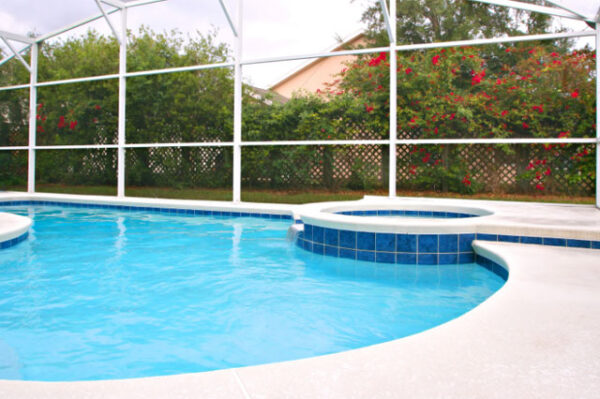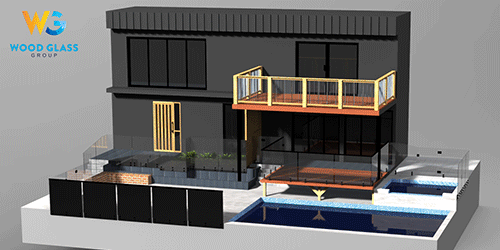Steel Pool Fences: A Durable and Low-Maintenance Safety Solution
A reliable pool fence is one of the most important investments any homeowner can make. It helps protect children and pets from unsupervised access to the water, reduces the risk of unfortunate accidents, and promotes peace of mind. When it comes to choosing a durable, long-lasting barrier, steel fences often top the list. Designed to withstand difficult weather conditions and meet stringent safety requirements, these fences offer a functional yet attractive way to secure any backyard swimming area.
The Importance of Pool Fencing
Children are naturally curious, and water can be particularly enticing. Even a momentary lapse in adult supervision can lead to catastrophic consequences if a pool is not properly enclosed. Installing a fence around the perimeter is therefore not just a legal obligation but also a moral responsibility. It creates a physical barrier that can significantly reduce the risk of drowning, especially among young kids.
Beyond child safety, a fence also provides an added layer of security, deterring intruders or stray animals from entering the swimming area. Many insurance providers look favorably on homes with compliant pool barriers, potentially lowering premiums. Taking the time to select a fence that is both sturdy and compliant is an investment that pays dividends in safety, security and peace of mind.
Standards and Regulations
Most swimming pools and pool fences need to adhere to strict guidelines set out in the Building Code as well as the local version of Australian Standard AS 1926.1. These rules outline minimum fence heights, safe distances between vertical bars, and maximum allowable gaps at the base pool gates. Gates to swimming pools must be self-closing and self-latching to prevent children from wandering in unsupervised.
Local councils can also enforce variations of these rules or add extra provisions. While these requirements might seem strict, they exist to ensure that any front gate or fence installed in residential front truly protects the vulnerable. Staying informed about local regulations, and consulting professionals familiar with them, is key to avoiding hefty fines or having to redo non-compliant work.
What Makes Steel Pool Fences Stand Out?
Steel is renowned for its durability and exceptional strength. Unlike timber that may warp or crack, or glass that can shatter under pressure, steel maintains its integrity in challenging environments. This quality makes it a top choice for homeowners who wish to avoid frequent repairs and replacements.
Moreover, steel fences often feature protective coatings that shield them from moisture or ultraviolet rays. This ensures that they retain their structural robustness and visual aesthetic appeal for many years, even with routine exposure to water splashes and direct sunlight. Compared to other materials, steel requires less intervention to preserve its look and function, making it a highly efficient choice.
Strength and Durability in Harsh Climates
In regions subject to extremes of heat or sudden temperature fluctuations, some fencing materials can deteriorate quickly. Steel fences, however, are engineered to endure. With proper treatments, they stand up well against blistering sun, driving rain, and even salt-laden sea breezes.
Galvanized steel has a protective zinc coating that provides an additional layer of rust resistance. This process helps the metal withstand the damaging effects of moisture and oxygen. When combined with concrete with a powder-coated finish, galvanised steel and fences panels are further protected against surface damage, meaning they remain strong and intact over time.
Low-Maintenance Benefits
One of the standout advantages of steel is its relatively low maintenance needs. Unlike wood fences that require periodic staining and sealing, or glass panels that demand frequent polishing, steel posts and fences can simply be hosed down to remove dirt or salt residue.
While a light wash every now and then keeps a steel fence looking fresh, it usually doesn’t demand specialized cleaning agents or procedures. A gentle brush with soapy water can be done if stubborn grime accumulates. For busy homeowners or those who prefer to spend less time on property upkeep, steel pool fences are a practical, worry-free solution.
Stylish Designs and Customization Options
There’s a misconception that steel fences look industrial or plain. In reality, they come in a wide array range of designs suitable for both contemporary and traditional homes. Sleek vertical bars and posts can complement modern architecture, while wrought iron-style flourishes add charm to more classic settings.
Many installers offer custom options, allowing homeowners to choose decorative motifs, ornamental tops, side panels or unique panel shapes. Even color choices can be adapted to suit and blend with existing landscaping or building features. This design flexibility ensures that a functional pool fence can also serve as a tasteful addition to add something to the outdoor space.
Galvanized and Powder-Coated Finishes
Steel fencing products often undergo two key treatments to maximize their longevity. The first is galvanizing, which immerses the steel in molten zinc or applies a zinc-rich coating. This technique bonds the zinc to the steel, forming a protective shield that guards against corrosion.
Following galvanization, powder coating can be applied to improve the fence’s appearance and resistance to wear. This coating process electrostatically charges powdered paint particles, which then fuse to the metal’s surface during curing. The result is a smooth, even finish that stands up to chipping, fading, and everyday knocks, ensuring that the fence remains attractive for many years.
Corrosion Resistance and Rust Prevention
Rust is one of the primary concerns with metal fences in humid or coastal regions. Fortunately, modern steel fences incorporate features that reduce or even eliminate rust formation. The galvanizing and powder-coating processes, when done to a high standard, ensure that moisture, salt, and other corrosive elements struggle to penetrate the metal’s surface and form it.
Should minor scratches appear, they can often be easily touched up using specialized paints or sealants. This quick fix halts corrosion at the point of damage. Regularly checking the fence for chips or scrapes helps maintain its pristine condition and keeps the protective layers intact.
Installation Considerations and Tips
Correct installation is key to meeting mandatory safety standards. It’s critical to ensure the fence is high enough, with minimal gaps between vertical bars or near the ground. Equally important is the positioning of any gate, which must open outward, self-close, and self-latch. Professional installers typically verify these details to guarantee compliance.
Before construction, it’s wise to confirm whether any underground utility lines might interfere with fence panels or posts. If the property is sloped, fence panels may need to be raked or stepped to keep them level while maintaining the correct clearance at the bottom. Good planning prevents surprises, ensures the fence fits perfectly, and avoids local council objections.
Compliance with Local Guidelines
Each council may have specific requirements for pool barriers in addition to the main standard. These might include rules about boundary distances, landscaping near the fence, or additional signage. Some authorities conduct on-site inspections to verify that all criteria have been met before issuing final approvals.
Ignoring or overlooking local rules can lead to steep fines or mandatory modifications that add to the product or overall cost. Consult with experts or council officials early in the review process to streamline the approval journey. Knowledge of local codes helps ensure your product has a smooth installation and avoids any last-minute hurdles.
Enhancing Safety with Childproof Latches and Gates
A sturdy fence is only as secure as its gate. Most local standards require a gate to swing outwards from the water area and be equipped with a self-closing mechanism. The gate kit latch typically needs to be placed at a height that is out of reach for small children, and pets, thereby preventing easy access.
There are options like magnetic latches, which offer a strong hold and reduce the likelihood of accidental releases. Some homeowners also consider key-lockable latches for extra cost and additional security. Whichever latch system is chosen, making sure it meets all safety rules is crucial for maintaining a compliant and childproof environment.
Maintaining Steel Pool Fences
While steel fences are known for their low maintenance, a little attention goes a long way. A quick rinse with a garden hose helps wash away dust, chlorine residue, or salt, preventing these elements from lingering on the front fence panels. In areas prone to heavy rain or storms, checking for any new damage after severe weather is prudent.
Examining hinges, latches, and posts occasionally ensures everything remains sturdy and aligned. If any bolts or screws loosen over time, they can usually be tightened with standard household tools. Promptly fixing minor issues, like chipped paint or small rust spots, helps preserve the fence’s functionality and appearance for many years.
Common Mistakes to Avoid
One common oversight is placing objects like planter boxes, chairs, or storage bins too close to the fence, inadvertently creating a climbable surface for children. Maintaining a clear zone on the ground on both sides of the barrier is essential to keep it non-climbable, as required by safety codes.
Another frequent mistake is neglecting the gate’s automatic closing or latching mechanism. If hinges become misaligned or the latch is blocked by debris, the gate might stay ajar. Frequent gate checks ensure it always shuts securely and continues to prevent unsupervised access to the pool area.
Conclusion
Steel pool fences deliver a robust and long-lasting safety solution for homeowners seeking peace of mind around swimming pools. With protective treatments like galvanizing and powder coating, they resist weather-related damage, remain rust-free for extended periods, and require minimal upkeep. This combination of durability extra cost, and ease of care makes steel a standout choice for pool enclosures.
When properly installed and maintained, these fences meet all relevant safety standards, helping to protect families and guests from potential hazards. From their streamlined appearance to their proven resilience, steel pool fences embody reliability without sacrificing style. By choosing a product that complies with local regulations, homeowners can create a secure, visually pleasing environment that will endure for years to come.
FAQs
Q1: Do steel pool gates and fences rust easily?
Good-quality steel pool fences typically undergo galvanizing and powder coating, which drastically reduce the risk of rust. Regularly inspecting pool gates for scratches or chips and quickly addressing any minor damage helps maintain their corrosion resistance over time.
Q2: What is the required height for a compliant pool fence?
According to the standard, pool fences must generally be at least 1200 mm high, though local councils might enforce slightly different height requirements per pool area. Always check local codes to ensure you meet all regulations.
Q3: Can I install a steel fence myself, or should I hire a professional?
While handy homeowners might attempt a DIY project, professional installers are usually recommended for residential such. They have the expertise to ensure correct spacing, proper gate mechanisms, and adherence to all guidelines, preventing costly errors and compliance issues.
Q4: How often should I clean and maintain my steel fence?
A simple rinse with water once every few weeks or after storms helps remove dust, chlorine, and salt. Inspecting for damage a few times a year is wise, and addressing small issues early can prolong the fence’s life and maintain its look.
Q5: Are there different style options available for steel fencing?
Yes. Steel fences can be customized with various designs, from minimalist modern lines to more ornate, traditional patterns. Powder coating also provides a range of color choices, ensuring you can match the perfect fence to suit your home’s exterior or landscaping preferences.


